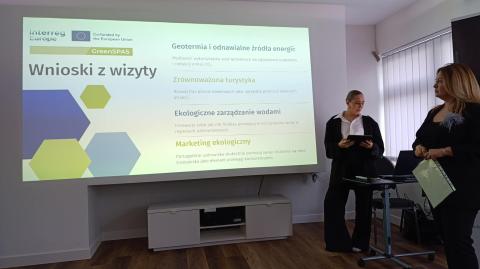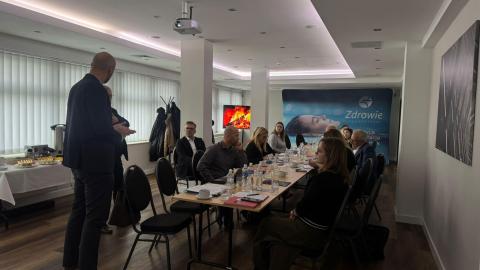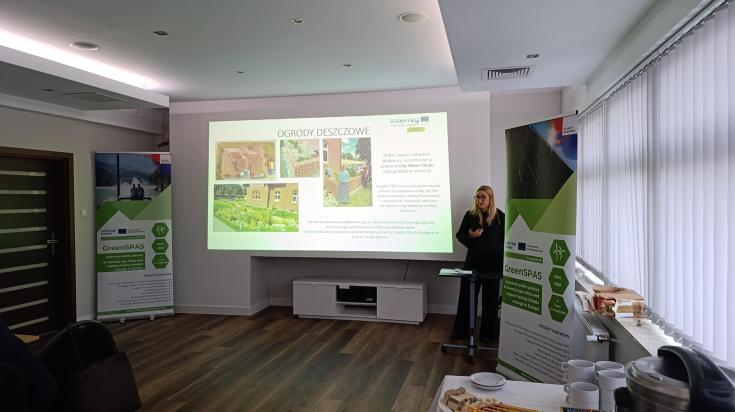Kujawsko-Pomorskie Hosts 2nd GreenSPAS Stakeholder Meeting
On December 6, 2024, the second meeting of the Regional Stakeholder Group of the GreenSPAS project took place at the Zdrowie Sanatorium in Ciechocinek. The meeting was attended by various stakeholders, including: local and regional authorities, Spa Industry representatives, environmental Experts, non-governmental organizations.

The goal of the meeting was to share experiences and ideas, both those observed during the study visit to Portugal and those developed in the Kuyavian-Pomeranian Voivodeship, as well as to discuss innovative solutions to help adapt spa towns to climate change challenges.
The meeting began with a presentation of best practices in managing spa towns and regions in the context of climate change, identified during the study visit to Viseu Dao Lafoes in Portugal. Green solutions that could be implemented in the spa regions of Kujawsko-Pomorskie included renewable energy sources, water-saving systems, sustainable transport and tourism, as well as ecological education and marketing.
The next point on the agenda was a presentation of the "Sponge City" project – an innovative approach to adapting the city's stormwater drainage system to climate change. This example of modern and effective solutions for addressing extreme weather events (improving water retention in the city, reducing flood risks, and enhancing residents' quality of life) could serve as inspiration for other spa towns as a regional best practice. Continuing the theme of regional best practices, Salutaris Association presented the assumptions of a pilot project aimed at creating climate resilience plans to enhance the ability of municipalities to respond to extreme weather events. The pilot also aims to foster cooperation between local governments and integrate ecological actions with socio-economic development, creating lasting solutions in the face of global environmental challenges.

Following the presentations of best practices, the discussion focused on ecological solutions applied in the attendees' respective facilities. A proposal was made to create a database of best practices, which will be continuously updated by stakeholders. The discussion mainly centered on the identification of key areas that require detailed analysis, further knowledge development, and inspiration from the solutions presented in the project. The main areas of interest included energy efficiency, methods of utilizing lost energy, reducing carbon footprints, effective waste management systems, and protecting water resources (e.g., rainwater management and creating green-blue infrastructure).
Participants emphasized the importance of collaboration between various stakeholders, including local authorities, the spa industry, experts, and NGOs, to develop cohesive and effective adaptive strategies.
As a result of the meeting, several action proposals were formulated, which will be implemented in the near future, including the organization of targeted workshops with experts, further improvement of water retention systems, and the development of environmentally friendly infrastructure.

